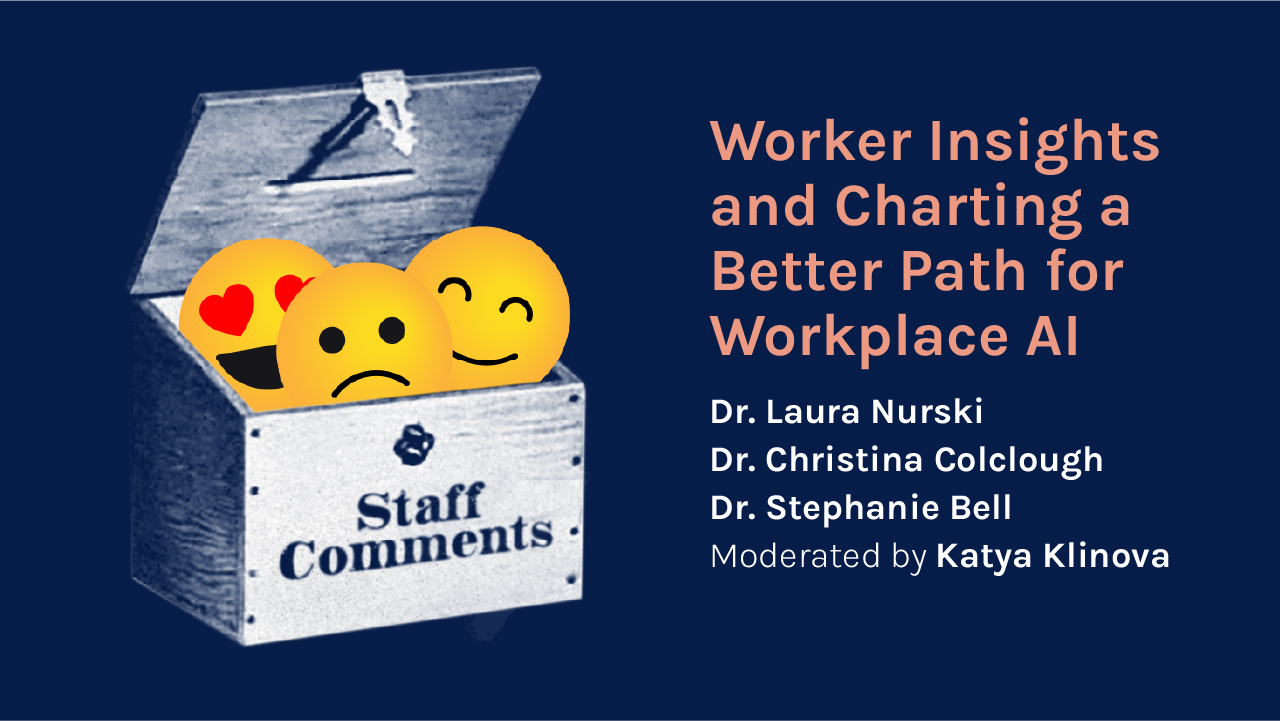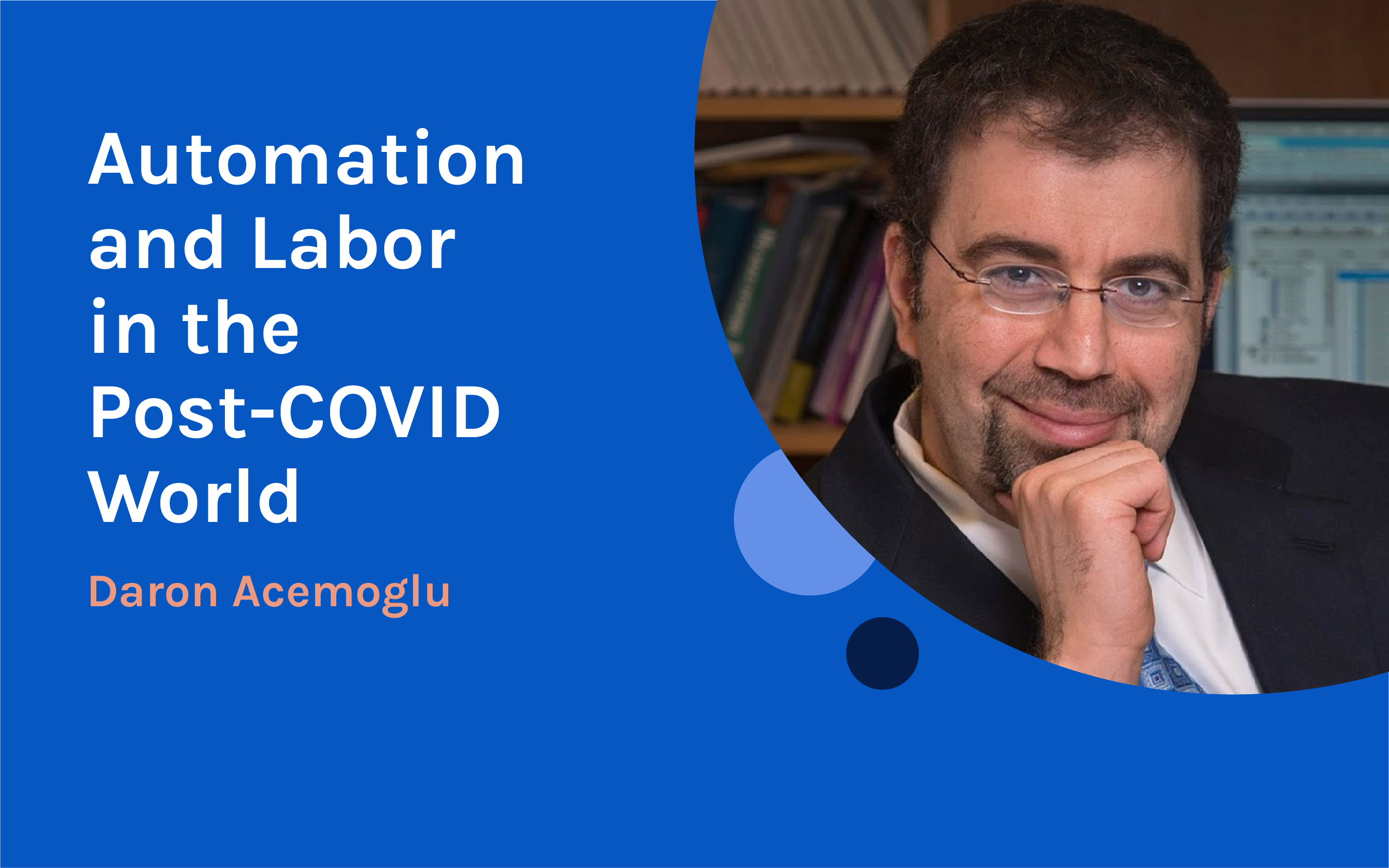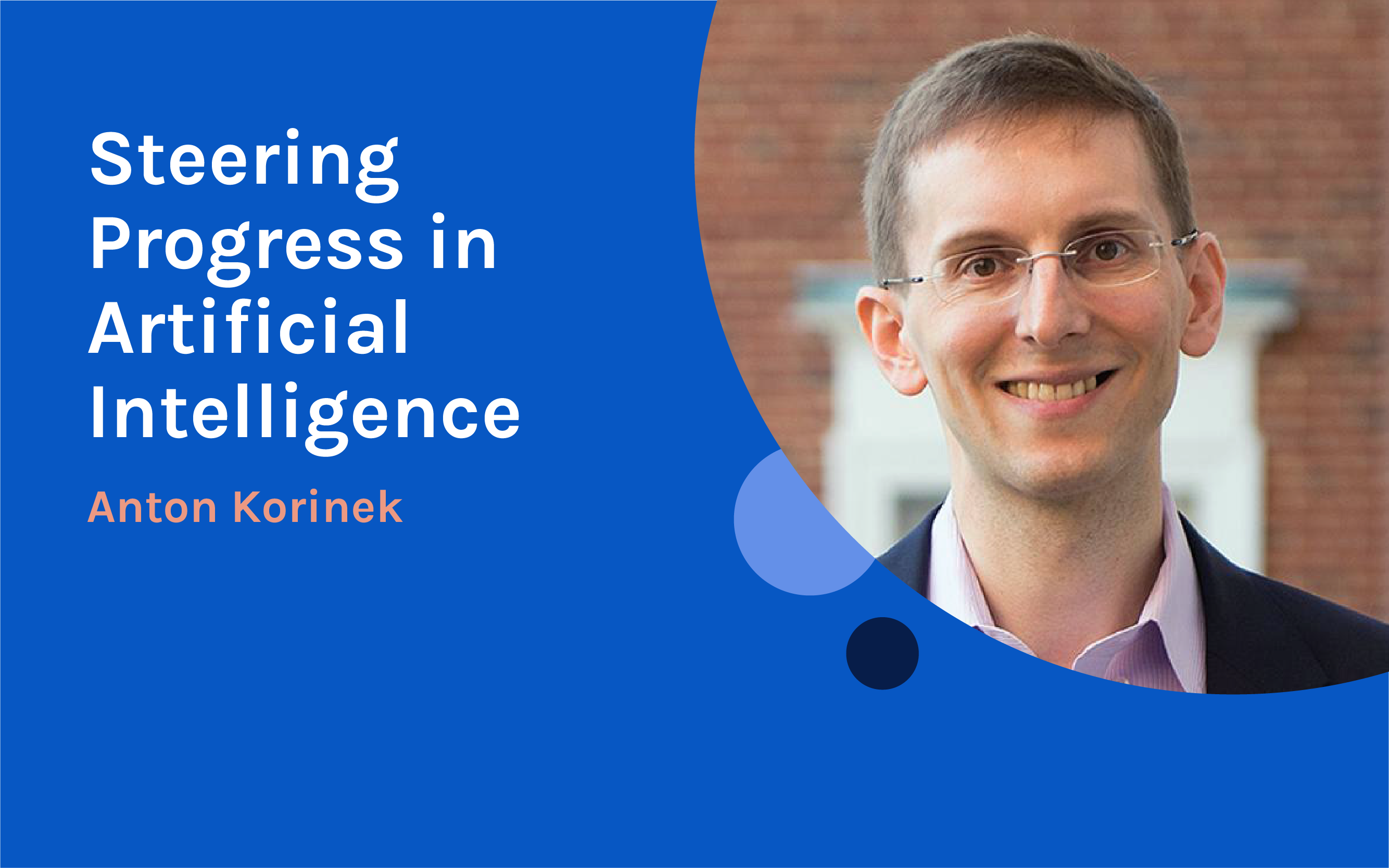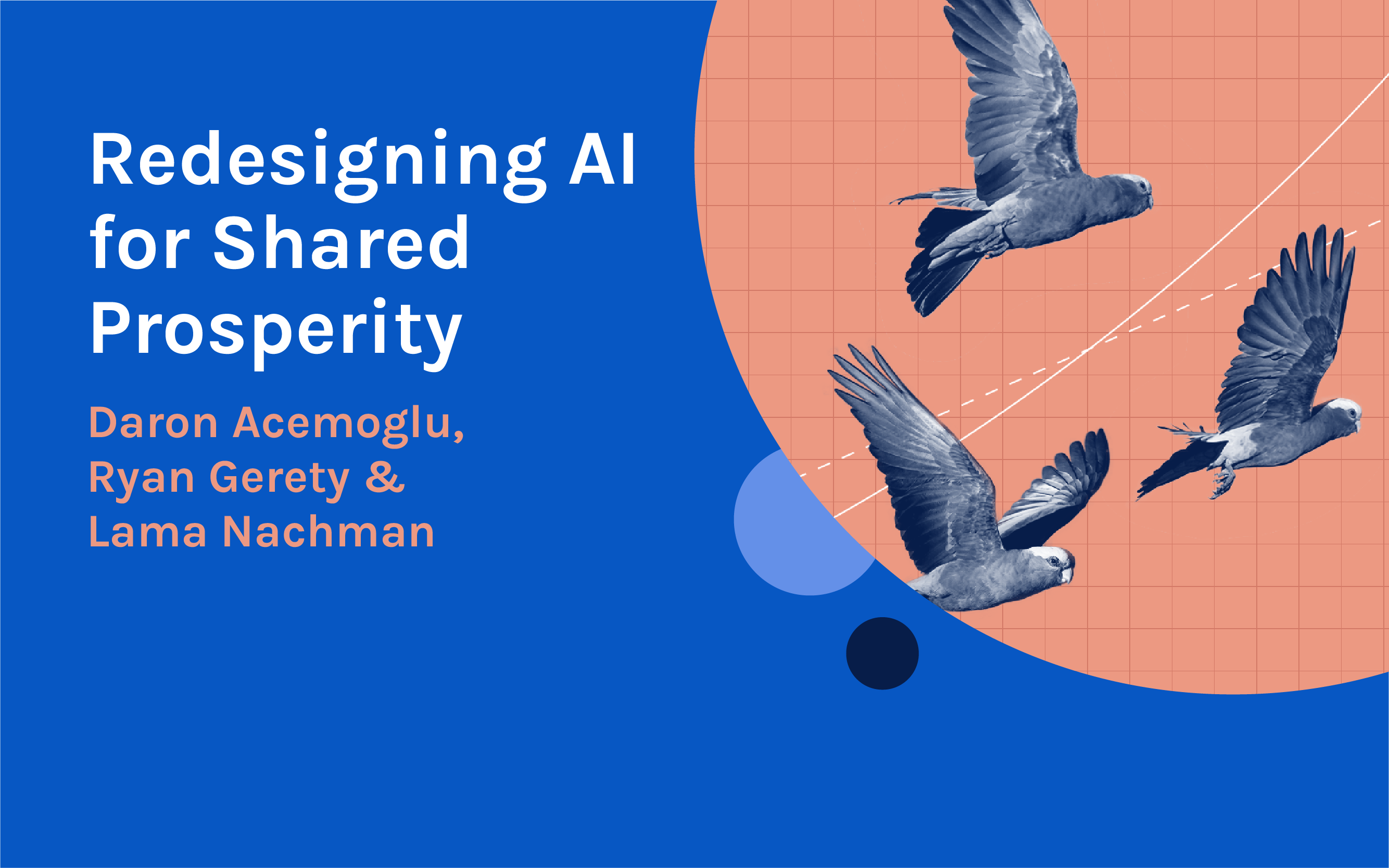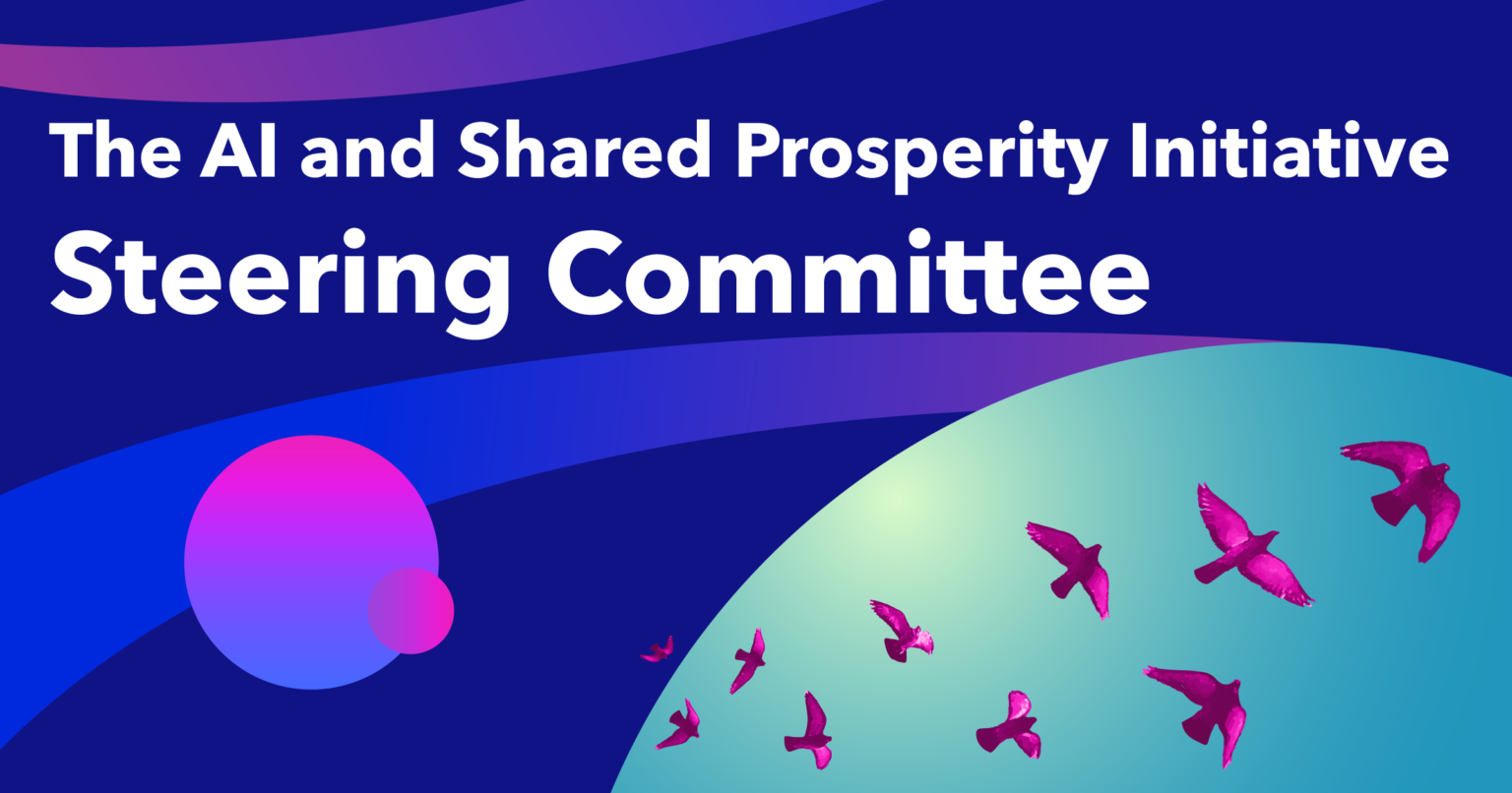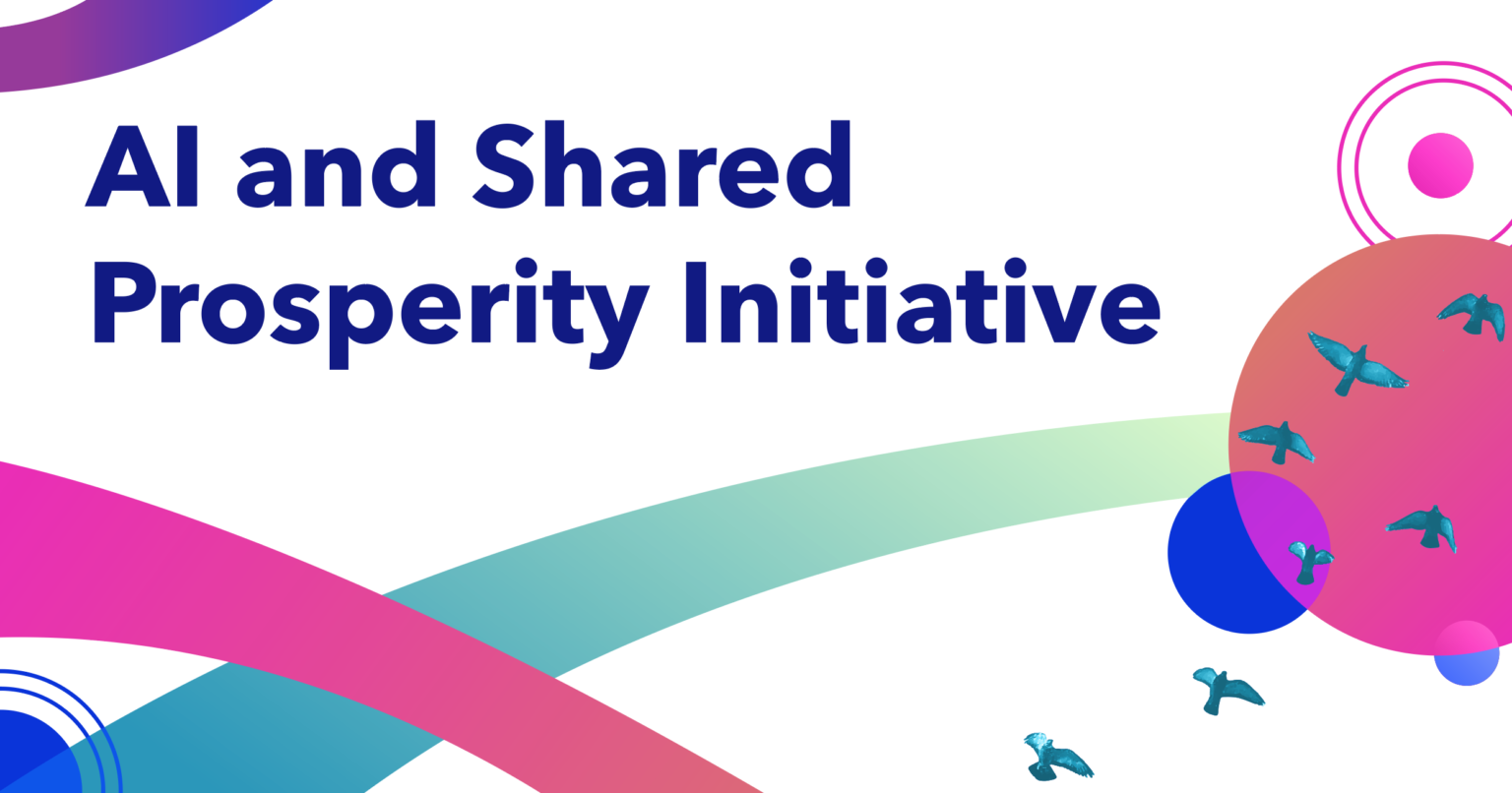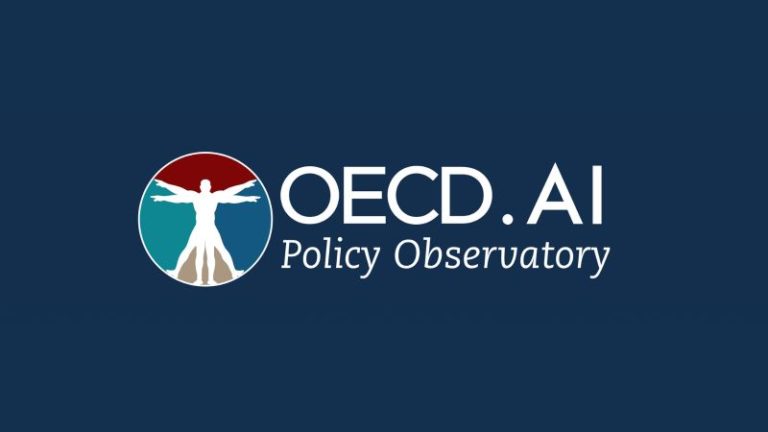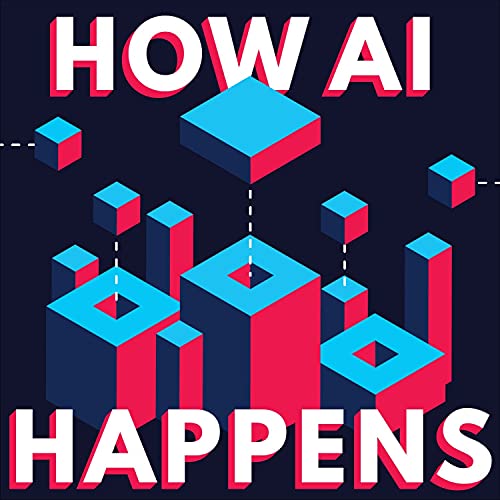Overview
The AI and Shared Prosperity Initiative (AI SPI) gathers multidisciplinary input to develop and disseminate practical frameworks that equip our Partners and broader stakeholders with practical approaches to ensure that AI progress advances broadly shared prosperity, and not the economic betterment of a few to the detriment of many.
In 2023, PAI released Guidelines for Shared Prosperity – drawing upon the collaborative work of a multi-stakeholder Steering Committee launched in 2020. The Guidelines serve as a tool to proactively guide AI advancement in the direction of expanding the economic prospects of workers. This work drew upon on a range of perspectives in its careful examination of the relationship between AI advancement and the distribution of economic opportunity, relying on input from workers, a multi-disciplinary body of thinkers from academia, the AI industry, civil society, labor, and the broader public.

Guidelines for AI and Shared Prosperity
Initiative Outputs
Impulse Talks and Past Events
Key ideas and questions at the heart of the Initiative in the words of its Steering Committee, Research Group, and contributing experts as shared during Steering Committee deliberations and public discussions hosted by PAI and our Partners.
Updates
Steering Committee

Daron Acemoglu
Institute Professor Of Economics
MIT

Dunstan Allison-Hope
Vice President
Business for Social Responsibility

Juana Catalina Becerra Sandoval
Visiting Scholar, Responsible & Inclusive Tech
IBM

Dean Carignan
Chief of Staff
Office of the Chief Scientific Officer, Microsoft

Andrea Dehlendorf
Senior Advisor and Co-Founder
United for Respect

Arturo Franco
Senior Vice President
Mastercard Center for Inclusive Growth

Jessica Fulton
Vice President
Joint Center for Political & Economic Studies
Ryan Gerety
Senior Advisor
United for Respect

Deborah Greenfield
Former Deputy Director-General for Policy
International Labour Organization

Anton Korinek
Professor of Economics
University of Virginia

Andrew Kortina
Co-founder
venmo.com & fin.com

Abbie Langston
Director, Equitable Economy
PolicyLink

Jody Medich
CEO, Founder
Superhuman-X

Pamela Mishkin
Policy Staff Member
OpenAI

Shakir Mohamed
Senior Staff Scientist
Deepmind

Grace Mutung’u
Project Head
Open Society Foundation

Reema Nanavati
Executive Director
Self Employed Women’s Association

Aiha Nguyen
Program Director
Labor Futures Initiative Data & Society Research Institute

Rahul Panicker
Co-founder and CEO
Tendril AI

Damon Silvers
Senior Advisor
AFL-CIO

Sarah Treuhaft
Senior Director of Policy and Partnerships
Institute on Race, Power, and Political Economy

Jordan Usdan
Senior Director, Strategy & Innovation
Office of the CTO, Microsoft
Foundational Questions
The AI and Shared Prosperity Initiative is founded on the belief that the path of technological advancement is not predetermined; collectively, society can actively shape its technological future with a focus on shared prosperity.
The AI and Shared Prosperity Initiative’s work will begin by investigating three primary groups of questions:
- Defining specific objectives an AI industry actor should pursue to contribute to shared prosperity. What would be tangibly different about a company that ensures its AI development and deployment strategy is inclusive by design?
- Developing a way to measure whether progress is being made towards these objectives. How can a given actor developing or deploying AI quantify whether it is advancing towards its objectives around contributing to shared prosperity?
- Developing practical frameworks, pathways, and policies that companies can adopt to advance towards their objectives, without replacing or hindering future regulation. The frameworks should equip the AI industry actors with practical approaches for analyzing questions such as: How can a given private sector actor anticipate the direct and indirect economic impact of their AI development and deployment on a range of stakeholders? In particular, how will their actions affect the structural features of the economy that make it more or less inclusive? How can they ensure their business activity does not shrink the economic prospects of vulnerable groups or even entire nations, but expands those? What processes should be incorporated into the planning and development cycles of AI projects to account for economic consequences?
While addressing the three groups of questions above is necessary, it is not sufficient. In order to steer AI development towards an inclusive economic future, we must also address the question of how to motivate private sector actors to commit to ensuring that AI advances broadly shared prosperity. Nevertheless, decision infrastructure and concrete understanding of desirable policies are necessary if such commitment is to be acted upon. For example, no business would have been able to commit to reducing greenhouse gas emissions if emissions measurement frameworks had not been invented, and if the determination that emission reductions are desirable in the first place not been made.
Frequently Asked Questions
Initiative Details
There are a number of existing efforts that aim to address some of the risks posed to economic inclusion by the advancement of AI. Notably, algorithmic fairness research tackles questions of algorithmic bias which can manifest in many domains with direct link to income and power distribution, such as hiring, access to credit, academic admissions, housing allocations, etc. While not leaving out the questions around potential exclusions produced or exacerbated by algorithmic bias, the AI SPI will specifically emphasize a relatively neglected set of questions around proactively designing AI to expand economic prospects and earning potential of workers with fewer opportunities for educational advancement. Thus, the Initiative will examine the relationship between AI advancement and the distribution of economic opportunity, which is not central to the algorithmic fairness literature.
The focus of the AI SPI is on developing responsible behavior strategies for private sector actors in the AI space. We recognize that, aside from the industry’s behavior and innovators’ ideas, there are many other aspects that influence the path of AI technology progress, including regulatory regimes, public R&D, investment in human capital, tax incentives, and other factors largely determined by governments. However, the AI SPI focuses on the responsibilities of private sector actors for the following reasons:
- Most of the tangible applications of AI systems that affect our every-day lives are being developed by the private sector, and so have been many of the path-breaking conceptual advances in AI in recent years.
- Many developers and entrepreneurs in the AI space are interested in maximizing their positive impact on the world and seek frameworks for thinking about the effects of their actions on the labor market and economic prospects of the least advantaged societal groups and nations.
- AI is poised to impact the economic future worldwide, therefore the AI SPI is global in scope. Government policy is usually focused on the welfare of a single nation, while companies developing and deploying AI often operate globally and hence need to think about the global impact of their operations.
- Research and public discussion of government policy for AI and the Future of Work are rapidly expanding, while the question of corporate responsibility around ensuring that AI serves shared prosperity remains relatively neglected.
That said, the importance of democratic governance for steering the progress of AI in socially beneficial directions cannot be overestimated. The AI SPI does not seek to in any way replace or impede any future regulation. Private sector actors should not be deciding the global economic future, a democratic process should. Simultaneously, we recognize that the everyday decisions around AI development and deployment do have far-reaching consequences for the distribution of economic opportunity and thus must be approached responsibly and with these consequences in mind. Guidance on how to systematically implement such an approach is currently lacking; this is the gap that the AI SPI is looking to bridge.
Investing in making sure a company’s business activity supports shared prosperity and avoids putting entire groups at an economic disadvantage is not only the ethical thing to do, it also provides companies with a number of ancillary benefits:
- Supporting Employer Brand Reputation. Talent is a key asset in the AI business; top AI talent usually enjoys being able to choose what employer they want to work for. Ethical values of the employer are definitely not the only factor influencing that choice, but a responsible approach to the question of economic impact would be valued by altruistically-oriented prospective employees. This factor speaks to a broader economic incentive: a bad brand reputation can cost employers as much as 10% more per hire.3 According to a UK survey by doteveryone, over 1 in 4 tech workers “have seen decisions made about a technology that they felt could have negative consequences for people or society. Nearly one in five (18%) of those went on to leave their companies as a result.” 4
- Getting a Head-start Preparing for the Future Regulatory Requirements. Mandatory disclosures of human rights impacts (including economic rights impacts), as well as other measures to advance business respect for human rights are becoming more widespread and this trend is expected to continue.5
- Meeting Investor Expectations. Considering environmental, social and governance factors (ESG) is becoming common for investors who are increasingly seeking sustainable business practices and paying growing attention to long-term value.5
- Supporting Consumer Brand Reputation. Losing consumer trust is a significant risk for many businesses in the AI industry. The attention consumers pay to the environmental and social impacts and supply chain practices of major brands is spotty, but not entirely absent. We believe it is just a matter of time before consumer attention will also turn towards the economic impact of AI companies, and hope to help speed up the arrival of that moment.
Aside from that, many of the leaders in the AI Research and Development space share the commitment for supporting human flourishing, and actively look for ethical and responsible ways to grow their business.
We invite stakeholders and visionary thinkers from a broad range of disciplines to join this effort—workers, social scientists, technologists, civil society, community and labor organizers, human rights advocates, and more. If you are interested in contributing your ideas, expertise or lived experience, or know someone whose perspective we should seek to inform how we conduct this work, please get in touch with us.
Reasons to Pursue the Initiative
AI advancement has the potential to vastly increase our shared prosperity. But this outcome is not guaranteed and is unlikely to happen by itself.6 Market forces tend to favor efficiency but do not care about how the gains from progress are distributed. Technological progress in recent decades has reduced the labor share of income even though overall income has risen. Empirical evidence from the US points out that while tasks displaced and reinstated by technological change balanced out during the four decades following WWII, the later three decades have seen task displacement significantly outpacing reinstatement.7 AI is poised to continue this trend, and may accelerate it.
Moreover, market prices are often significantly distorted and do not necessarily reflect society’s true scarcities; positive and negative externalities abound and might lead innovators to create businesses that are profitable, but not socially beneficial or just. A classic example is a carbon-emitting facility whose beneficiaries do not internalize the full societal costs of environmental damage. Tax regimes often further distort incentives for innovators. For example, the current tax regime favoring capital over labor,8 combined with labor mobility restrictions,9 creates strong incentives to develop AI applications focused disproportionately on labor-saving use cases. If these conditions remain in place, AI advancement might bring about levels of automation well above socially optimal, to the disproportionate detriment of the economically vulnerable populations around the world.
These risks are becoming increasingly recognized by the growing body of scholarship on the “future of work”. However, the current debate places a disproportionate burden of adjustment to the changing technological landscape on governments, educational institutions, and workers themselves. Questions around the role and responsibility of the AI industry remain relatively neglected.
There is nothing wrong or bad with automation of tasks previously done by humans; but automation is one of the key mechanisms through which technological change redistributes wealth and resources. Such redistributions can profoundly impact a large number of people,10 and thus the question of what the private sector actors in the AI space can do to ensure the economically vulnerable populations around the world are not made worse off in the process is an important one.
Along with automating human tasks, technological change often introduces new tasks that are valued in the labor market, creating new income opportunities for people.
While it is reasonable to expect that AI will continue the trend of automating some human tasks while also creating new ones, a few aspects of the process will be important determinants of whether or not workers (and the less privileged among them in particular) will lose out as a result:
- Relative volume of tasks getting displaced and reinstated. As has been stated above, in the last three decades the US have seen task displacement significantly outpacing reinstatement.7 AI is poised to continue this trend, if not accelerate it.
- Relative skills requirements of tasks displaced and reinstated. If the new tasks that AI advancement creates require a much higher level of skills or educational attainment compared to tasks being automated, these new tasks might be of little relief for many workers whose jobs get displaced by automation.
A type of technological change that disproportionately benefits those endowed with comparatively high levels of skills and education attainment is called skill-biased. The problem with skill-biased technological change is that it is poised to exacerbate society’s structural inequalities, especially in countries where levels and quality of educational attainment are correlated with wealth.
Not all technological change is skill-biased. There is nothing inherent about AI that forces its applications to be skill-biased, or even labor-saving. One of the focus areas of the AI SPI is exploring how AI can be used to augment human’s productivity and expand the economic possibilities of people with limited access to training in a world where education remains prohibitively costly or inaccessible for many.
The AI and Shared Prosperity Initiative does not try to discourage efforts to expand social safety nets or improve education; these policies are extremely important. However, they may not be sufficient to ensure an inclusive economic future.
We believe that it is important to complement these efforts since both the expansion of safety nets and better education also face significant headwinds. It is unclear if a global and robust system of taxes and transfers that would pay for a UBI is feasible. Moreover, it is unclear if more and more investment in education will be able to overcome the trends of recent decades that led to income losses for lesser-educated workers. This makes the need for developing AI applications that augment humans (vs. displacing them) even more pressing. Therefore, the AI SPI is founded on a question: how can we make AI that matches the skills of humans, instead of asking humans to match the ever-changing skills requirements of economies being reshaped by AI?
Translating Responsible AI principles into concrete practices is an important part of PAI’s work and mission. Dozens of organizations developing and deploying AI have published AI principles, many of them listing supporting and enabling an inclusive economy, or benefitting all. Yet an anticipation of AI advancement generating “left behind” groups remains widely shared. To deliver on its mandate, PAI must help bridge this gap. We welcome and encourage other organizations to join the effort or look at the questions the AI SPI is posing on their own.
[1] Rodrik, D. 2020. “Technology for All”. Project Syndicate (March 6, 2020) https://www.project-syndicate.org/commentary/shaping-technological-innovation-to-serve-society-by-dani-rodrik-2020-03
[2] Acemoglu, D. and Restrepo, P., 2019. The wrong kind of AI? Artificial intelligence and the future of labor demand (No. w25682). National Bureau of Economic Research. https://www.econstor.eu/bitstream/10419/196790/1/dp12292.pdf
[3] Burgess, W., 2016. A Bad Reputation Costs a Company at Least 10% More Per Hire. Harvard Business Review. https://hbr.org/2016/03/a-bad-reputation-costs-company-at-least-10-more-per-hire
[4] Miller, C. and Coldicott, R., 2019. People, power and technology: The tech workers’ view. https://doteveryone. org. uk/report/workersview.
[5] Bağlayan, B., Landau, I., McVey, M. and Wodajo, K., 2018. Good Business: The Economic Case for Protecting Human Rights. Available at SSRN 3304959.
[6] Brynjolfsson, E. and McAfee, A., 2011. Race against the machine: How the digital revolution is accelerating innovation, driving productivity, and irreversibly transforming employment and the economy. Brynjolfsson and McAfee.
[7] Acemoglu, D. and Restrepo, P., 2019. Automation and new tasks: how technology displaces and reinstates labor. Journal of Economic Perspectives, 33(2), pp.3-30. https://pubs.aeaweb.org/doi/pdfplus/10.1257/jep.33.2.3
[8] Acemoglu, D., Manera, A. and Restrepo, P., 2020. Does the US Tax Code Favor Automation? (No. w27052). National Bureau of Economic Research. https://www.nber.org/papers/w27052
[9] Pritchett, L., 2020. The future of jobs is facing one, maybe two, of the biggest price distortions ever. Middle East Development Journal, pp.1-26. https://erf.org.eg/wp-content/uploads/2019/12/1370.pdf
[10] Korinek, A., 2019. Integrating Ethical Values and Economic Value to Steer Progress in Artificial Intelligence (No. w26130). National Bureau of Economic Research. https://www.nber.org/papers/w26130





